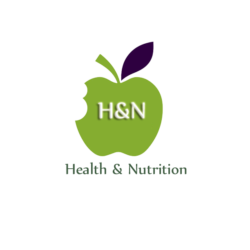Plant-Based Diet vs. Animal-Based: Which Wins in 2025?
A Diet Debate That Keeps Evolving
In 2025, the conversation around plant-based vs. animal-based diets has never been hotter. With the rise of climate consciousness, chronic health conditions, and clean eating trends, people are rethinking what’s on their plate.
So, which diet truly wins when it comes to health, sustainability, and nutrition?
Let’s explore the facts, trends, and science-backed pros and cons of both.
What is a Plant-Based Diet?
A plant-based diet focuses on foods derived from plants, including:
- Vegetables
- Fruits
- Whole grains
- Legumes (beans, lentils)
- Nuts and seeds
- Plant oils
Some people follow it strictly (vegan), while others eat mostly plant foods with occasional animal products (flexitarian).
What is an Animal-Based Diet?
An animal-based diet emphasizes:
- Meat (chicken, beef, pork, mutton)
- Fish and seafood
- Eggs
- Dairy products (milk, cheese, curd, paneer)
- Animal fats like ghee or butter
It’s often associated with high-protein, keto, or paleo diet styles.
Nutritional Comparison: Plant vs Animal
| Nutrients | Plant-Based Foods | Animal-Based Foods |
|---|---|---|
| Protein | Lentils, tofu, nuts, seeds | Chicken, eggs, fish, dairy |
| Iron | Spinach, legumes (non-heme) | Red meat, liver (heme – better absorbed) |
| Vitamin B12 | Fortified foods only | Naturally present in all animal foods |
| Calcium | Leafy greens, fortified milk | Milk, paneer, curd |
| Fiber | High in plants only | Absent in meat and dairy |
| Omega-3 | Flaxseeds, chia seeds | Fatty fish (more bioavailable) |
Health Benefits in 2025: What Science Says
✅ Benefits of a Plant-Based Diet
- Lower risk of heart disease, diabetes, and high blood pressure
- Supports weight loss due to lower calorie density
- Rich in fiber and antioxidants
- Better gut health and improved digestion
- Supports mental clarity and skin health
Studies show that flexitarian diets (mostly plant-based with minimal meat) outperform strict vegan or heavy meat diets for long-term metabolic health.
Benefits of an Animal-Based Diet
- Complete proteins with all essential amino acids
- High in bioavailable iron, zinc, and vitamin B12
- Supports muscle building and athletic performance
- Saturated fat (in moderation) helps with hormone balance
Recent data reveals that pasture-raised meat and grass-fed dairy have higher levels of omega-3s and are less inflammatory compared to factory-farmed meat.
🌎 Sustainability & Environment: The Ethical Angle
🌱 Plant-Based Diet
- Lower carbon footprint
- Less water and land usage
- Better for climate change mitigation
- Aligns with animal welfare ethics
🍖 Animal-Based Diet
- High emissions, especially from red meat
- Overgrazing and deforestation issues
- Ethical concerns in factory farming
Downsides of Each Diet
❌ Plant-Based Cons:
- Risk of vitamin B12 and iron deficiency
- Some plant proteins are incomplete
- Can be low in calories if not balanced properly
❌ Animal-Based Cons:
- Excess red/processed meat linked to heart disease and cancer
- Zero fiber, can lead to poor gut health
- Environmental and ethical concerns
What’s Trending in 2025: The Rise of the Hybrid Diet
In 2025, more people are choosing “plant-forward” or flexitarian diets, where:
- 80–90% of meals are plant-based
- High-quality animal proteins (like eggs, paneer, fish) are eaten occasionally
- Focus is on minimally processed whole foods
This middle-ground approach is proving to be more sustainable and balanced than extreme versions of either diet.
Sample 1-Day Hybrid Diet Plan (Indian Style)
🌞 Breakfast:
Oats porridge + almond milk + banana + chia seeds
🍛 Lunch:
Brown rice + rajma + cucumber salad + 1 bowl curd
☕ Snack:
Green tea + roasted chana
🍽 Dinner:
Whole wheat roti + palak paneer + beetroot stir-fry
FAQs: Plant-Based vs Animal-Based Diet
❓ Which diet is better for weight loss?
A plant-based diet, especially high in fiber and low in refined carbs, often leads to better weight management.
❓ Can I build muscle on a plant-based diet?
Yes—with foods like tofu, lentils, and protein-rich grains, plus supplements if needed.
❓ Is meat unhealthy in moderation?
Moderate intake of lean, organic meat (not processed) is not harmful and can be beneficial when balanced.
❓ What is the healthiest diet in 2025?
A flexitarian or Mediterranean-style diet—plant-based with occasional animal products—is widely considered healthiest for longevity and sustainability.
Conclusion: So, Which One Wins in 2025?
There’s no one-size-fits-all answer, but here’s the takeaway:
- If you want to improve heart health, lose weight, and live sustainably: go mostly plant-based.
- If you’re an athlete or have high protein needs: include high-quality animal foods in moderation.
- The best diet in 2025 is diverse, balanced, and personalized.
Related Articles You Might Like:
- [Top Vegan Protein Sources in the Indian Diet]
- [Is Ghee Healthy or Harmful? 2025 Nutrition Verdict]
- [Flexitarian Diet: The Balanced Way to Eat in 2025]
- [10 High-Protein Indian Vegetarian Meals]





